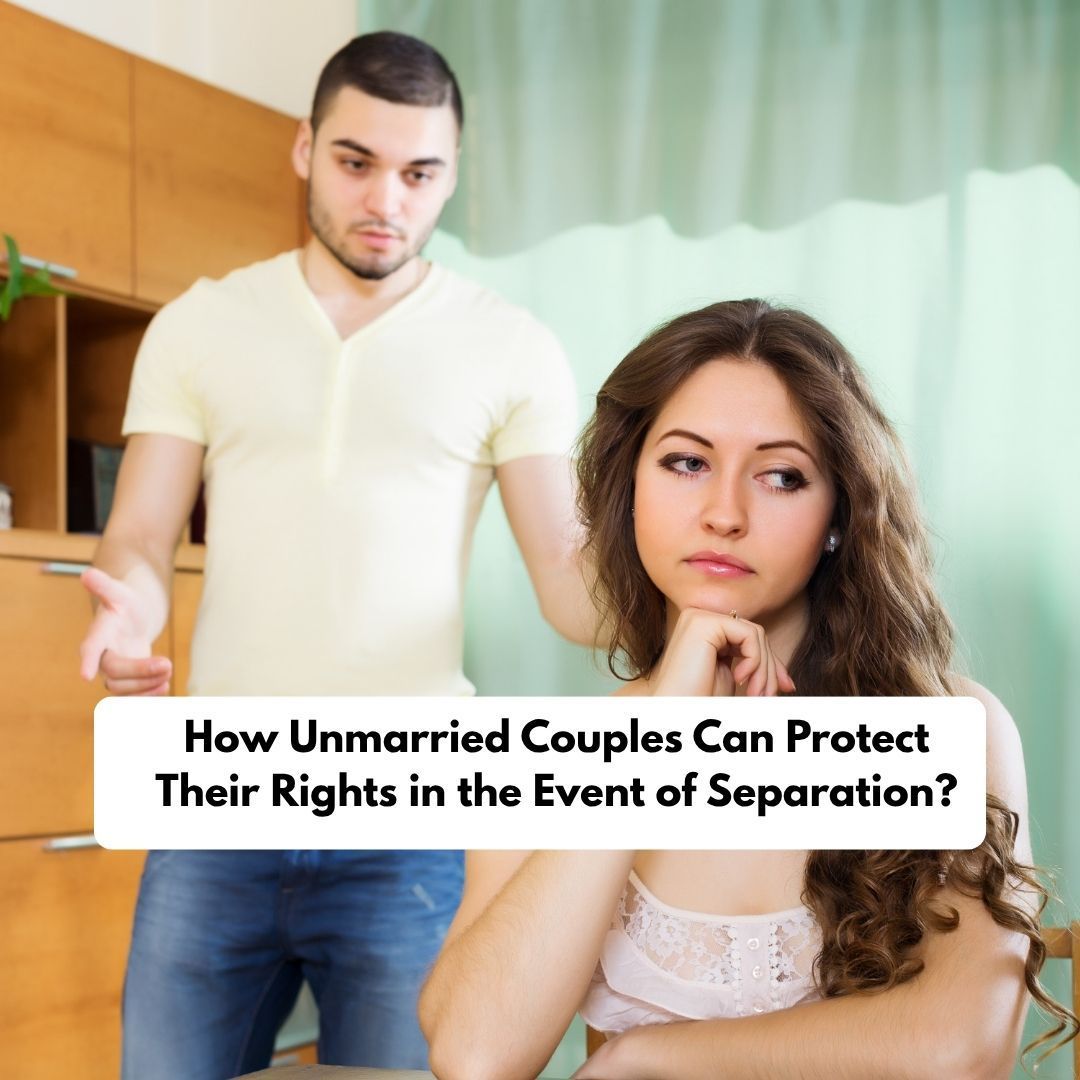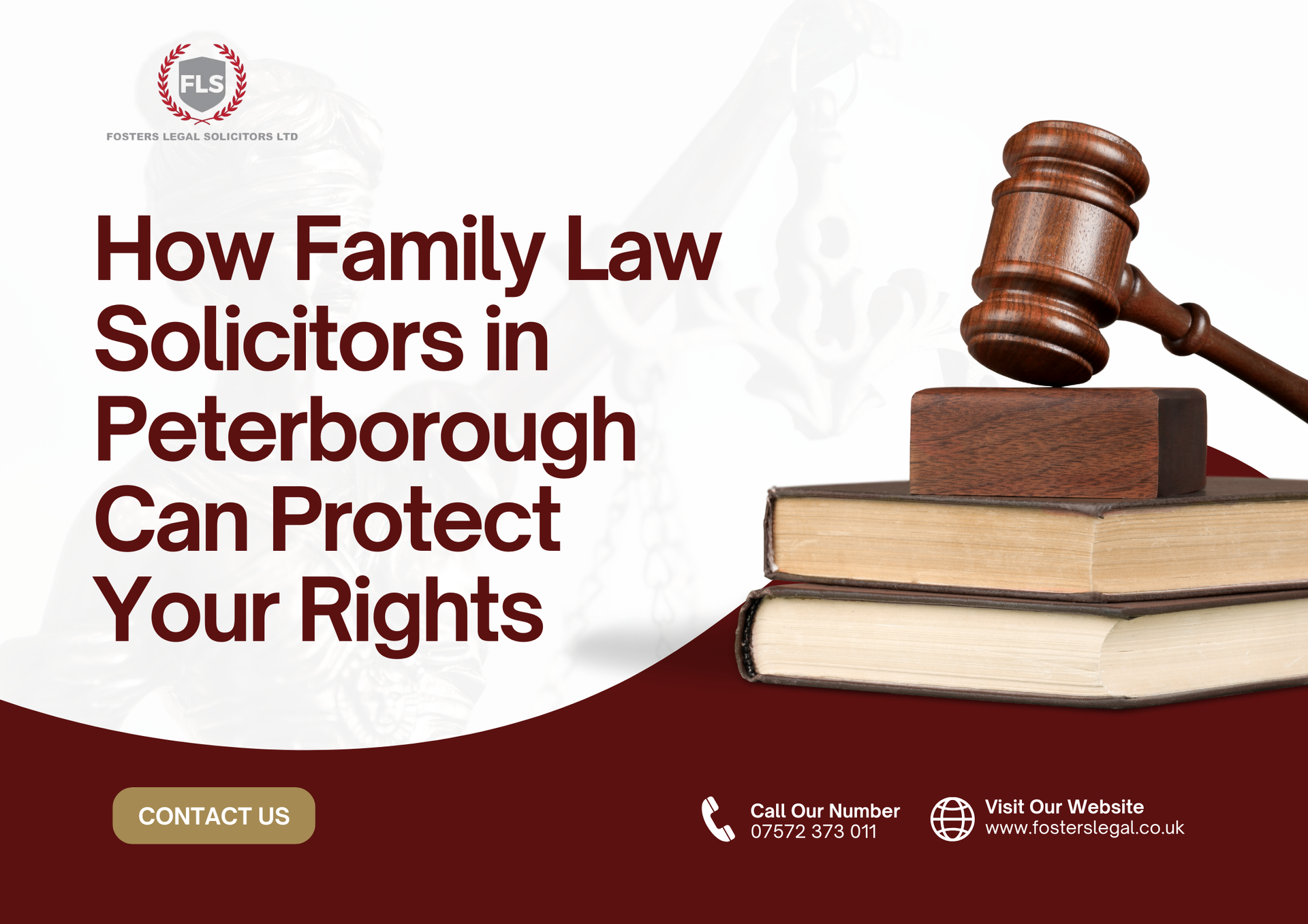What Are the Legal Rights of Cohabitation in the UK?
What Are the Legal Rights of Cohabitation in the UK?

Nowadays, it’s pretty normal for couples to cohabitate before final commitment, and honestly, that’s perfectly normal. It’s a kind of new approach that helps couples to know each other better before making a lifelong decision. But, there’s an important thing that often gets missed: living relationships don’t offer the same legal rights protections as marriage does. Being aware of the rights of cohabitation as a couple is not at all about questioning the relationship; it is a part of being ready in case something goes wrong.
If one partner owns the house, covers most of the bills, or if something unfortunate happens, the other partner might find themselves with little to no legal rights. This guide will break down what cohabitation truly means, how it’s different from marriage, and what steps you can take to safeguard yourself legally. By the time you finish reading, you’ll have a clear picture of your situation and how the
right legal advice in the UK can provide you with clarity and peace of mind in your relationship. So, why not take that next step to protect yourself? Seek out expert advice that’s tailored to your unique circumstances today.
What Does Cohabitation Mean?

Cohabitation is simply about living together as a couple without tying the knot or entering a civil partnership. It’s a popular choice for many couples in the UK who want to share their lives, homes, and responsibilities without making it official in a legal sense. But despite how straightforward it seems, the law doesn’t really have a clear definition of “cohabitation,” which is where things can get a bit murky.
No Legal Definition
Experts point out that there’s no specific legal recognition for couples who cohabit in the UK law. The idea of “common-law marriage” is just a myth; living together, regardless of how long, doesn’t automatically give you the same legal rights as a married couple.
Casual vs Long-term Living
Some couples might share a home for just a few months, while others may spend years building a life together. However, without legal recognition, both scenarios face the same legal limitations. The duration of your cohabitation doesn’t enhance your legal standing and gives you no rights of cohabitation.
At Foster Legal, we often encounter couples who thought cohabitation would provide them with legal protection, only to discover it doesn’t. That’s why grasping the true meaning of cohabitation is the first step. Next, let’s explore how it contrasts with marriage in important legal aspects
Difference Between Marriage and Cohabitation

A number of couples believe that their occupation of cohabiting together provides the identical concession as inclusion in a marriage, but it’s not true. These differences emerge when something happens, such as handling of money, raising of children, or breaking up. Here’s what you need to know.
1. Legal Status
The marital union provides legal status to couples in the UK. This implies that the court has the ability to intervene in the case of the termination of the relationship. This is not automatic for cohabiting couples. The law considers them as individuals isolated regardless of the period they spent together.
2. Banking and Finances
Married couples often share bank accounts, allowing both access to the funds. Cohabiting couples may also open joint accounts, but if one partner dies, the money isn’t always automatically transferred to the surviving partner. For debts, each person is responsible for loans or credit agreements made in their own name. If a debt was taken out jointly, both partners can be held liable.
3. Children
In married couples, both parents automatically share responsibility for their children. In cohabiting relationships, however, only the mother holds parental responsibility by default. Unmarried fathers must be named on the birth certificate or apply legally to gain the same rights. Both parents are expected to contribute to child maintenance to ensure the child’s welfare and financial support.
4. Financial Support / Maintenance
At the level of the legal concept, married partners are obliged to support one another. That is not the obligation of cohabitants. Without one of them to contribute, then the other is not able to obtain much legal assistance, despite years of cohabitation.
5. Appointing a Guardian
The spouses also tend to make guardians for their offspring automatically. The right is not extended to cohabiting partners who have to organize it in a will or in any other legal document.
6. Inheritance
In the event of death of a married team partner, there is also intestacy whereby the other spouse inherits. Couples who live in cohabitation with each other do not inherit even in case they have spent a great part of their life together. A will is needed in order to have protection.
7. Separation / Dissolution
The courts have the power to separate the assets equally during divorce by way of marriage. There would be no property or financial support automaticities to couples living jointly should they be separated. The one who holds what is in his own name keeps it, except in cases where he can demonstrate that the contribution comes financially.
8. Debts
Every partner is liable for his/her own debts except where they jointly took the credit. In case one spouse fails to meet the debt, the other spouse can get liable with him or her, i.e., in case of rent or loans.
9. Domestic Violence / Protection
Both married and unmarried partners can apply for protection through occupation or non-molestation orders. The law treats safety equally in both cases.
10. Financial Support in Other Forms
Married couples are entitled to some tax benefits, such as spousal allowances or pensions. Cohabiting partners are not automatically entitled to these and will only receive financial support if there is an agreement in place or if specified by law.
At Foster Legal, our
divorce solicitors have seen many couples face challenges simply because they didn’t know how differently the law views marriage and cohabitation. Knowing these distinctions helps you take the right legal steps to protect your relationship and future.
Next, let’s explore the rights of cohabitation in the UK and what you can actually rely on under current law.
What Are the Rights of Cohabitation in the UK?

By simply remaining as a couple, there is the possibility that staying together is like a relationship, yet in the UK, the legalization does not provide much support. In the case that you have contributed to the purchase of a home in relation to your partner, such as contributing funds towards the mortgage or getting the place in good condition. You might sue a portion of the property under the law of trusts; however, you must prove this. The cohabitants may also request occupation orders so that they can spend some time in the house temporarily, pending the resolution of a dispute. When the children are involved, both parents should cover the cost of the services, and the same principles addressing the problem of domestic abuse should cover all members of the population.
However, cohabitation does not necessarily grant any portion of a partner's property, money, and pension regardless of the length of time they have lived jointly. Being an expert
family law solicitor in Watford, we describe the boundaries and assist couples through action measures to safeguard them.
Now, let’s explore how unmarried couples in the UK can protect their rights and prepare for separation with clarity and confidence
How Unmarried Couples Can Protect Their Rights in the Event of Separation?
Cohabiting does not put you at a disadvantage, legally. There are specific actionable things that you can do to save up your money, property, future, and right of cohabitation. This is how the couples in the UK will be sure that they will not be hurt and in a good situation, yet unmarried.

Cohabitation Agreement
A cohabitation agreement stipulates the ownership of what, including payment of bills, and what would transpire upon separation. It is similar to a financial roadmap, keeping the two partners updated. To secure your interests in the future, it is good to make one early in your relationship to avoid confusion.
A family solicitor, such as
Fosters Legal, can help you draft an agreement that’s clear, valid, and fair to both sides.
Declaration of Trust (Trust Deed)
When you purchase a house in common, the number of partners whose fractions are on a common property is registered under a Declaration of Trust. It prevents failures in case of selling the house or when one of the partners departs. This document is quite helpful in case any individual pays more in the deposit or mortgage. The benefits of having it legally registered are that everything is transparent and fair.
Make a Will
Your partner would not necessarily receive your property in case you do not have a will, regardless of how long you spend with him or her. Leaving a will will ensure that your partner is properly dealt with as you desire. It is a consular yet essential action that provides the two with tranquility of state and legal security.
As an illustration, the process can be made easier and precise with the help of a
will writing service in Peterborough. It can assist you to form your desires in a transparent way and prevent further conflicts. It is a mere yet important measure that assures peace of mind and legality for both individuals.
Civil Partnership
In England and Wales, a civil partnership has been possible for opposite sex couples since 2019. This provides most of the rights of marriage, such as inheritance, tax privileges, and next of kin mark-up. It is a realistic alternative for the couple who desire legal security without being married.
Expert Support from Fosters Legal
The law of cohabitation is not easy, yet you do not need to deal with it on your own. Fosters Legal focuses on helping unmarried couples protect their rights through straightforward and affordable legal advice. Their team provides you with legal confidence in your relationship since they draft contracts, manage property ownership and wills, etc.
Understanding how to protect your rights is essential, but knowing where to get expert help makes all the difference.
Conclusion
Cohabitation has become a modern way of living for many couples in the UK, but understanding the rights of cohabitation is crucial to avoid unexpected legal challenges. As discussed, cohabitants don’t automatically share the same legal protections as married couples, which makes planning ahead essential. Setting up a cohabitation agreement, creating a declaration of trust, or using a will writing service in Peterborough can help secure your assets and define responsibilities clearly.
At Foster Legal, we guide couples through every step of understanding their rights of cohabitation and protecting their future with the right legal support. Whether you’re in Peterborough, Stevenage, Watford, or anywhere in the UK, our expert solicitors can provide advice tailored to your situation. Take the smart step today, contact Foster Legal for a personalised consultation and secure your peace of mind
Frequently Asked Questions
What rights do cohabiting partners have in the UK?
Cohabiting partners have limited rights compared to married couples. They can claim rights only over jointly owned assets, parental responsibilities, or through formal agreements like a cohabitation agreement or declaration of trust
Can my girlfriend claim half my house in the UK?
Not automatically. Unless her name is on the property deeds or she can prove a financial contribution towards the home, she cannot claim ownership of your property
What are the rules of cohabitation?
There’s no single law governing cohabitation in the UK. However, couples can protect themselves through written agreements that define finances, property rights, and responsibilities in case of separation
How long do you have to live with someone to be common law UK?
There’s no legal recognition of “common law marriage” in the UK, no matter how long you live together. Your rights remain separate unless you’re married or have formal legal agreements
What is the 2-year cohabitation rule?
The “2-year rule” often refers to certain benefit or pension claims where couples must prove they’ve lived together for at least two years. It doesn’t grant legal marital rights or property entitlements












